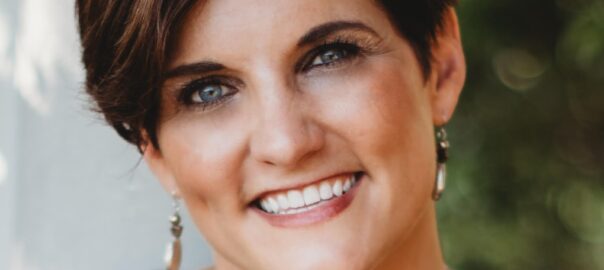By: Andrew K. Clark
Book: Even As We Breathe
University of Kentucky Press, 2020.
“Good literature is felt in the body.”
AKC – South 85: Tell me about the decisions you made around including Cherokee folklore in the novel. I am thinking of Spearfinger and other lore you included.
Clapsaddle: I wanted anything I included to be pretty natural. I wanted it to be something characters would reference casually anyway. I didn’t want to teach folklore through the narrative, so just as I would think about dialogue, for instance, I would think about what aspects of Cherokee stories or culture would be relevant in that moment. I needed it to serve a purpose, that it added another layer to the narrative. And there may be some instances where these inclusions might not be obvious to all readers, just those who have experience with Cherokee culture. That’s fine with me too. There are different layers for different readers.
AKC – South 85: I have a question around point of view. Cowney is an adult looking back on his life rather than telling the story from a teenager’s point of view. Tell me about that choice.
Clapsaddle: One of the most significant considerations when I was drafting the novel was to pay close attention to voice, mostly because of my experience with previous manuscripts. I had to spend so much time revising voice that I wanted to make sure I was being mindful about the voice I was selecting. I had read and teach Ta-Nehisi Coates’s Between the World and Me and that was almost a trigger for me to recognize that I liked the retrospective voice, almost providing advice to the next generation based on one’s experience. It allowed me to present a character who was obviously well educated later in life. That’s another thing I felt I had to be careful of, I didn’t want to present native characters who seemed ignorant or uneducated, even though he or she was still a teenager. To do so would have blended so easily into stereotype. I wanted to provide a Cherokee character who could be intellectually reflective. So, the retrospective voice allowed me to do both: show him young and learning but also provide a voice that is more representative of our culture and people.
AKC – South 85: One thing I’ve heard you talk about in other interviews is the Great Smokies Writing Program. Tell us about how that program and the larger writing community have affected your work.
Clapsaddle: As you’ve probably experienced yourself, we live in a very rural area so finding a writing community is more difficult than if we lived in a major city. So, I’ve been involved with the North Carolina Writers Network for a number of years. After my first manuscript didn’t look like it was headed for publication, despite winning some awards, I wanted something new. I felt I was ready to start a new novel but I love structure and so I took a writing workshop with Heather Newton at the Great Smokies Writing Program that UNCA (University of North Carolina at Asheville) coordinates. The name of the workshop was “Git ‘Er Done – Write Your Novel,” which sounded cheesy enough for me, but it was great because [the program] set out a structure. The assignments were to write a synopsis, to write a first chapter, a final chapter, and a climax chapter. And that was incredibly challenging for me to write a synopsis for a novel that didn’t yet exist. But that workshop gave me the structure I needed to be successful as well as some early feedback on my ideas. As a mother and full-time teacher, it allowed me to sit down in short segments of time and build the novel. That’s what I needed. Everybody writes differently but I really need to know where I’m going. That workshop taught me how to set that up for myself. I expanded my network to the Appalachian Writer’s Workshop that Hindman Settlement School hosts each year and that has been instrumental in building my network. I talk to someone every single day from Hindman. If it were not for that workshop, Even as We Breathe wouldn’t have been published. Fireside Industries is an imprint that came out of the Appalachian Writer’s Workshop and University of Kentucky Press. Silas House became my editor, partly through Hindman.
AKC – South 85: What can you tell us about your next book?
Clapsaddle: (Laughing) I’ll tell you what I know. It is set in contemporary Cherokee and my protagonist is female, probably late 30s. What I am doing is looking at traditional Cherokee origin stories, extracting the values and themes from them and applying them to this modern context and exploring Cherokee politics in a way. I want to get at the tension between traditional and contemporary Cherokee culture.
AKC – South 85: This is more of a writer’s question. You had a first manuscript that won awards but didn’t publish. Having gone through your experience with Even As We Breathe, do you have a sense for why that was the case, or is it still a mystery?
Clapsaddle: I know that manuscript needs work, if I were to return to it. I know there are things I could do differently. But it’s still a bit of a mystery to me. It was a finalist for the PEN/Bellwether, excerpts were published, etc. The more I get to know about this business, it really is being at the right place at the right time. I can tell you that I’m most interested in moving on to the new project rather than looking back.
AKC – South 85: You have a rich non-writing life, as a mother, teacher, and an avid mountain biker. Tell me how your non-writing life informs your writing.
Clapsaddle: One of the reasons I returned to teaching was the energy in my high school, both for the students and being around colleagues who are always thinking and troubleshooting issues. With students it’s the good, bad, and the ugly of teaching, right? I just think it’s a more authentic experience of the human spectrum. The kids are coming from different places, backgrounds, and ideas, and I need to approach them all the same. It just makes me think differently. It keeps me from getting in my own bubble. It fires something creative in my brain although it can be exhausting. With mountain biking, we are fortunate to live in a great place for biking and hiking, and I think reading should be a physical process. Good literature is felt in the body. It’s important for me to have a physical experience when I’m thinking about what I’m writing. Mountain biking does that for me. Mountain biking is like storytelling. You make it to the pinnacle to see where you’ve been and then you try to find the most exciting resolution possible without killing yourself.
AKC – South 85: If readers have enjoyed Even As We Breathe can you point them toward any other Easter Band of Cherokee artists they should pay attention to?
Clapsaddle: There are some really talented visual artists in the ECBI. Bear Allison is a wonderful photographer that everyone should check out. There’s a jewelry maker, Alicia Wildcatt who I really love. There is a group supported by the Sequoya Fund called Authentically Cherokee that supports our artisans on their website you can see the work directly.
AKC – South 85: Tell us about your influences.
Clapsaddle: I love a lot of the classic southern writers I studied in school, even though I now know some of them are problematic. I love Faulkner, I really do. The first native author that inspired me is now considered very problematic, but I will always say Sherman Alexie’s writing influenced me. He helped me realize I could write about where I am from instead of trying to write about something I’m not familiar with. Then it was those great Appalachian writers like Ron Rash and Charles Frazier and of course I now have Silas House for a mentor. Currently, I really love Louise Erdrich. She’s kind of my literary hero. I also love to teach Toni Morrison to my AP Lit students.
AKC – South 85: Tell us about your writing rituals.
Clapsaddle: I do a lot of writing off the page as I said before whenever I get outside or go bike riding. I might think about a sentence for an entire ride. I like structure, so I try to sit down to write with an objective in mind. I sometimes go to my family’s cabin to get a change of scenery. But I love my writing space at home. I have a lot of windows and I decorate it with things I collect: rocks and feathers, seashells, etc. I want to have natural elements nearby even when I’m inside. Sometimes I build music playlists with songs that fit the space I want to inhabit in a scene. When I’m focused on word choice and syntax, however, I usually have to turn the music off.

Andrew K. Clark’s work has appeared in UCLA’s Out of Anonymity, fall/lines, The Wrath Bearing Tree, and other journals. Main Street Rag Press published his first full-length collection of poetry, Jesus in the Trailer, in 2019. He is searching for a home for his first novel, The Day Thief. He is a native of Asheville, NC, and an MFA candidate at Converse College.
